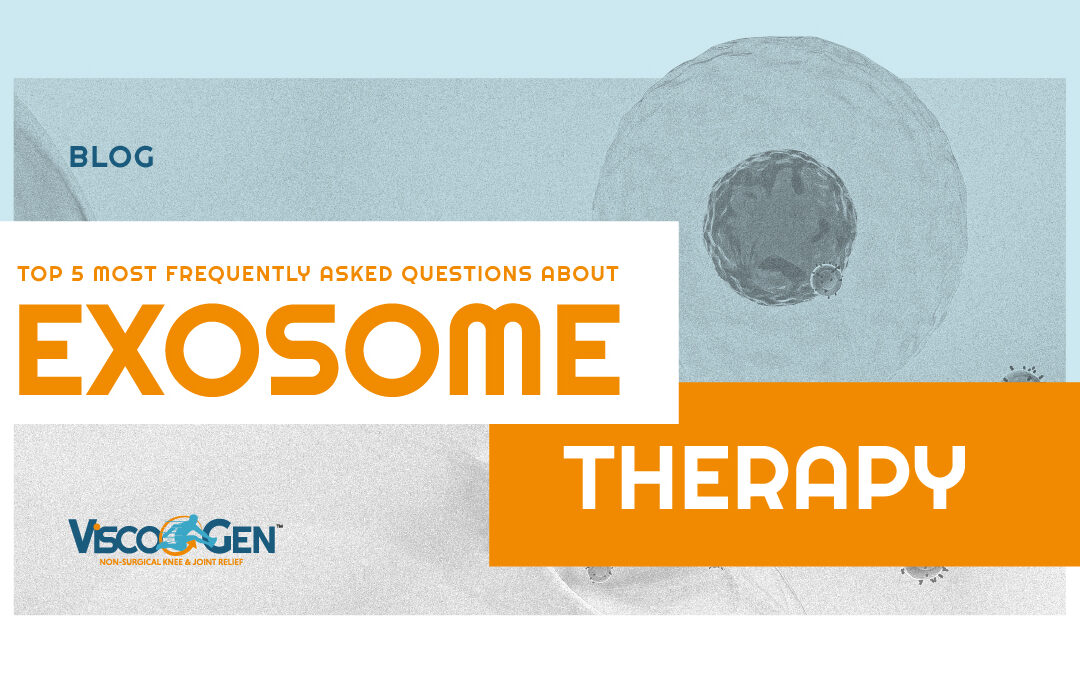Living with chronic pain and inflammation is no joke. Beyond the pain, inflammation can limit mobility and cause a significant decrease in your overall quality of life. In the past, the only long-term solutions were surgical, which come with numerous potential risks and side effects.
Today, people can choose regenerative therapy medicine options like exosome therapy instead of surgery. Below, we’ve answered five of the most frequently asked questions about this minimally invasive procedure.
1. How Does Exosome Therapy Work?
Exosomes are small vesicles released by all cells that carry important genetic information and signaling proteins from one cell to another. The primary job of Exosomes is to facilitate cell-to-cell communication, primarily to turn on or off certain functions. They can also tell cells to act a certain way.
When exosomes are injected directly into an affected tissue or joint, they begin signaling nearby cells to act in a way that facilitates a return to healthy functioning. During this process, proteins are sent out to remind cells how to function properly. Once cells have returned to a healthy state, inflammation is reduced, which lessens pain and improves mobility.
2. How Are Exosomes Different From Stem Cells?
Exosomes can’t self-replicate like stem cells, which negates tumor growth risks associated with stem cell therapy. Plus, exosomes can be stored long-term in a frozen state, giving them a significantly longer shelf life than stem cells.
3. What Benefits Can You Expect to Receive From Exosome Therapy?
A few of the most significant benefits you might expect to receive from exosome therapy include:
- Reduced inflammation in the treated joint or tissue
- Increased metabolic function
- Improved brain health
- Enhanced tissue regeneration
- Boost immune health
- Regeneration of articular cartilage in joints
- Thicker, healthier skin
4. What Conditions Can Exosome Therapy Potentially Help With?
Exosome therapy is a minimally invasive regenerative medicine procedure that can help with many conditions. However, the most benefit is provided for those conditions that affect the joints and soft tissue. Examples include:
- Arthritis
- Tendonitis
- Chronic knee pain and instability
- Osteoarthritis
- Decreased range of motion in any major joint
- Torn ACL, LCL, MCL, or meniscus
- Torn rotator cuff
- Torn Achilles tendon
- Tennis or golfer’s elbow
- Ankle, wrist, or elbow pain
- Sciatica
- Plantar fasciitis
5. What Are The Risks of Exosome Therapy?
There are relatively few risks from receiving exosome therapy. Since the procedure is minimally invasive, only bruising and mild soreness at the injection site is a significant concern as long as you receive treatment from a reputable treatment provider like ViscoGen®.
Reap The Benefits of Regenerative Therapy Medicine in Orlando Today
Are you ready to begin reaping the benefits of regenerative therapy medicine in Orlando today? Contact ViscoGen® to learn more about their exosome therapy and other treatments, including their proprietary non-surgical knee pain programs.





Información en español por favor. Gracias